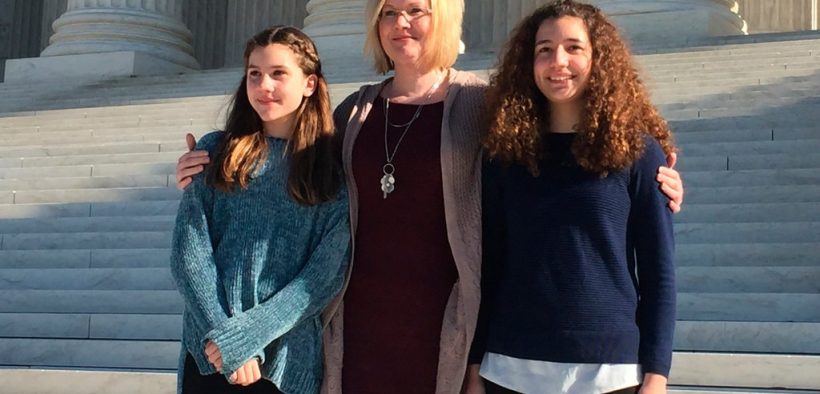Supreme Court Rules For School Choice, Religious Liberty

The U.S. Supreme Court gave religious liberty advocates a victory yesterday.
The decision came in the case of Espinoza v. Montana Department of Revenue. The Supreme Court ruled 5-4 that Montana’s no aid clause, also known as the Blaine Amendment, cannot exclude religious schools from programs that provide scholarship to students attending private school.
The ruling made it easier for families to obtain funding for religious schools, upholding a Montana scholarship program that allows state tax credits for private schooling. Now, families who receive tuition assistance may use this assistance towards any private school, regardless of its religious affiliation.
The dispute stems from a program created by the Montana Legislature in 2015 allowing residents to receive a tax credit by contributing to a scholarship fund. Soon after, the Montana Department of Revenue struck down the tax credit program for all private schools, religious and nonreligious alike. It cited the state Constitution’s ban on state aid for religiously affiliated schools, which make up 70 percent of all private schools in Montana.
The majority holds that the Blaine Amendment prevented students at religious schools from receiving scholarship funds that were available to the rest of the community, thus violating the free exercise of religion clause in the U.S. Constitution.
“A State need not subsidize private education. But once a State decides to do so, it cannot disqualify some private schools solely because they are religious,” Justice Roberts wrote in the majority opinion.
The Trump Administration praised the Supreme Court ruling. Press secretary Kayleigh McEnany responded by saying the decision, “removes one of the biggest obstacles to better educational opportunities for all children.”
Kelly Shackelford, President, CEO, and Chief Counsel to First Liberty Institute also affirmed the Courts decision by saying, “Again, today the Supreme Court held that the U.S. Constitution prevents the government from treating religious organizations and schools unequally, The Justices made it clear that states cannot legally discriminate against religious organizations when they perform the same work secular institutions do.”
The Courts four liberals dissented on the grounds that eliminating the Blaine Amendment would provide taxpayer funded handouts to religious schools. In a dissent, Justice Sotomayor said: “Without any need or power to do so, the Court appears to require a State to reinstate a tax-credit program that the Constitution did not demand in the first place.”
Liberals believe that the court’s decision could eventually require states to fund private schools when they would rather use money to fund public schools.
“The ripple effects will be disastrous.” said Alison Gill, Vice President for Legal and Policy at American Atheists. “Religious schools and programs will now have unbridled access to taxpayer dollars, devastating our system of public education.”
However, Justice Alito who agreed with the majority says the program at issue in the case “provided necessary aid for parents who pay taxes to support the public schools but who disagree with the teaching there.”



